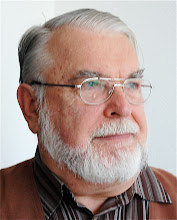No evidence that consciousness
could be fully understood in terms of computational models.
No evidence only expert opinion can be extracted from the 54 pages of the first chapter “Consciousness and Computation” in Roger Penrose’s book “Shadows of the Mind - a Search for the Missing Science of Consciousness” (OUP 1994), summarised in the Preface thus:
- My case has two distinct strands to it. One of these is essentially negative, in that I argue strongly against the commonly held viewpoint that our conscious mentality - in all of its various manifestations - could, in principle, be fully understood in terms of computational models. The other strand to my reasoning is positive in the sense that it represents a genuine search for a means - within the constraints of the hard facts of science - whereby a scientifically describable brain might be able to make use of subtly unknown physical principles in order to perform the needed non-computational action”.
Note that Penrose is a distinguished mathematical physicist and atheist. And that in spite of his search, he does not explicitly claim that science will be able to EXPLAIN consciousness (as e.g. it can explain the movement of the planets).
When he writes that “scientifically describable brain night be able to make use of subtly unknown physical principles in order to perform the needed non-computational action” this is a personal belief not very different from that of the theist who can make use of other (albeit non-physical) principles —namely of his/her faith —- that in his/her mind can play the role of Penrose’s “non-computational action”.
My personal belief is that science might be able to better and better approximate the function of consciousness by some “non-computational actions” but never be able to fully explain it like it can some phenomena from the physical world.
Of course, there are many definitions of consciousness.They are usually tailor-made to exhibit the quality that distinguishes humans from non-human animals and other life forms.
Penrose, for instance, devotes the whole of his Section 1.12 to a discussion of the terms awareness, understanding, consciousness and intelligence as he understands them. I cannot reproduce the lot here, only quote this (p.39)
- “‘(U)nderstanding requires ‘awareness’. Awareness I take to be one aspect - the passive aspect - of the phenomenon of consciousness. Consciousness has an active aspect also, namely the feeling of free will … the passive having to do with sensations (or ‘qualia’) … I take these to be two sides of a single coin.”
In particular, we speak of artificial intelligence (where computers come into play) not artificial consciousness or awareness.
I also remember, from somewhere else, a definition of consciousness as “awareness of being aware”, i.e the capability of capability of "being aware of bewing aware". In this sense apparently non-human animals are aware (of their environment) without being aware of their awareness.
I fail to see how it is relevant to Penrose’s (or other scientist’s) approach to the complicated (and rather ambiguous in scientific terms) concept of human consciousness (and awareness). In particular, how the “elementary biological function” that you associate with all sorts of living organisms (apparently including carnivorous plants) can be identified with what is referred to as
Apparently it is this “awareness of being aware” that one associates with the Latin cogitare, an activity — leading to all sorts of philosophical, artistic and scientific achievements, i.e. reactions to the environment — that only humans (human animals if you like) are known to be capable of.



